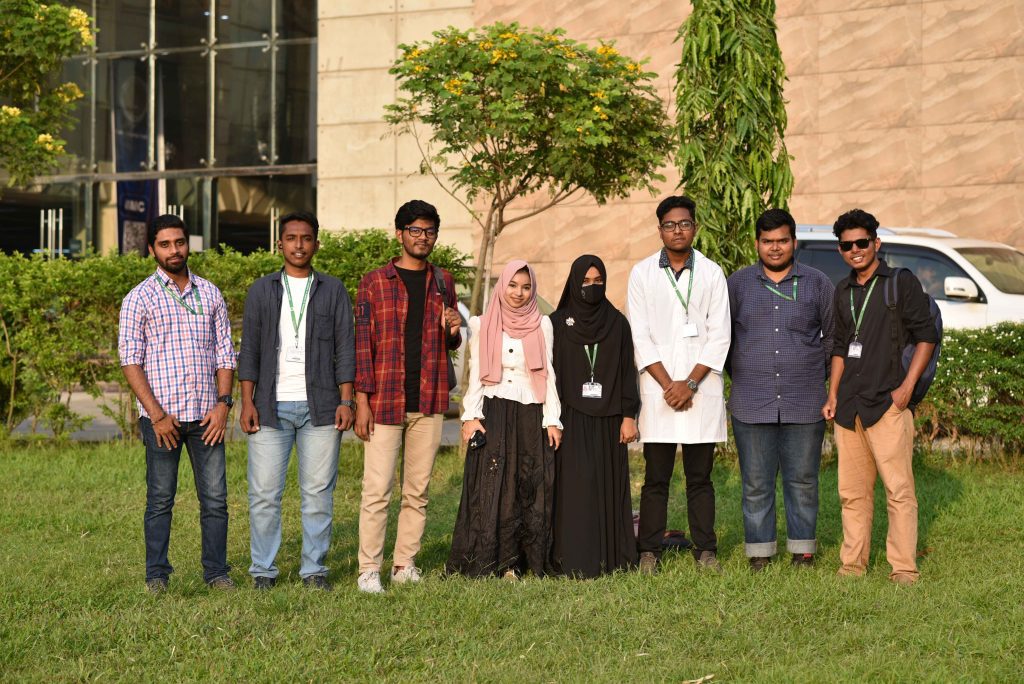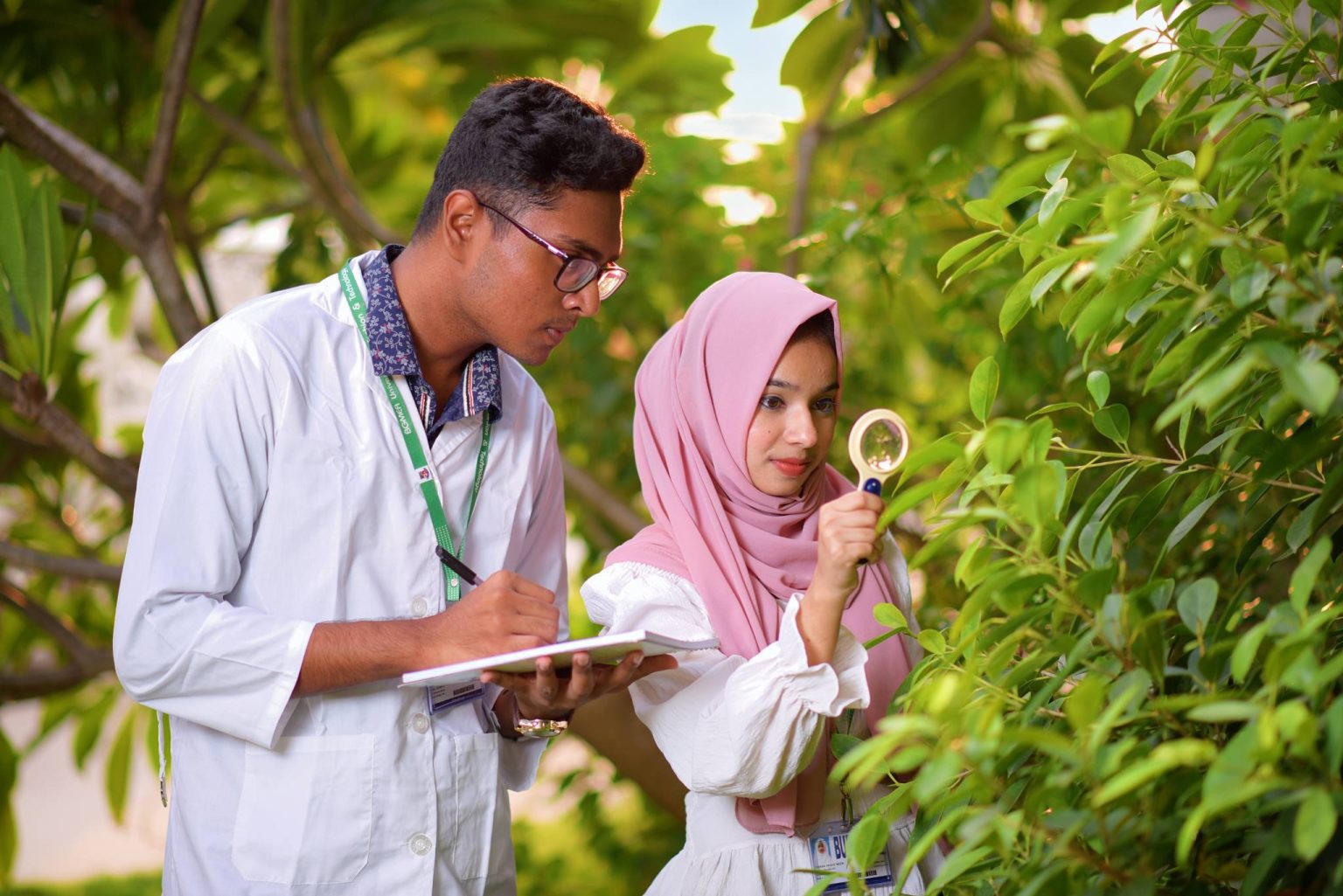Fortunately, Environmental Education in general and Environmental Science and Environmental Management in particular, have opened a new horizon of dealing with the challenge of protecting the environment. Whereas theory and practice of Environmental Management are quite broad, Environmental Science is ought to be the foundation of both Environmental Education and Environmental Management since, without knowing the science of environmental changes, Environmental Management cannot be founded on a sound footing. This is more so because the richness and robustness of Environmental Science lies in the fact that it is a meeting point of several scientific disciplines.
The world is currently in an environmental mess. In Bangladesh, where this mess is even more apparent, environmental education has been largely ignored so far. Gaining sound knowledge of environmental education is an urgent need. A large contingent of graduates with environmental education is essential for staffing of government ministries, departments and agencies; private sector factories, enterprises and business houses; institutions and organizations. For example, government needs capable professionals to scrutinize the existing set of environmental policies in light of their access to accumulated global stock of knowledge; and to formulate, implement and enforce each and every piece of policy measure by inspecting and monitoring them.
M 2: Students will be guided by applied research and digital technologies so that they see from a different angle through a creative approach by which they are able to provide simple solutions to complex technical problems in environment related sectors.
M 3: Department has a strong commitment to being a local, national and international leader in training of students for effective careers in different industries to achieve sustainable development.

● Innovation: Encouraging creative and innovative thinking to develop new solutions for pressing environmental challenges.
● Adaptability: Being open to change and adapting strategies in response to new scientific findings and evolving environmental conditions.
● Long-Term Vision: Considering the long-term consequences of actions and decisions on the environment and future generations.
● Collegiality: Facilitating collaboration, teamwork, and support for each other’s success
● Resource Efficiency: Using resources efficiently and reducing waste to minimize environmental impact.
● Responsibility: Accepting the responsibility to protect and care for the environment for the benefit of present and future generations.

Subjects from the fields of fundamentals in ecology, environment chemistry and biology, geomorphology and geographic information system, soils and sustainable water resources, management and remediation of pollution sites, environment management and environment impact assessment, causes and responses to climate change and other global environmental issues, ocean, forest and river ecosystems and their interaction with human activities set the key accents in this program.
The educational objectives of B.Sc. in Environmental Science program are as follows:
PEO 2: Graduates from this department will demonstrate professional communication skills and engage in productive research activities.
PEO 3: They will be involved in various sectors such as environmental research, education, water and energy companies, biodiversity related, conservation, climate, waste management, water quality and sustainable management, tourism etc. and will contribute to societal, technological and industry development.
B.Sc. in Environmental Science graduates will be able to:
PLO 2 Theoretical knowledge: Gain in-depth knowledge and understandings of each discipline or professional area across boundaries of nations with an aptitude to identify, access, analyze and synthesize existing and new knowledge, and integrate them for enrichment of knowledge.
PLO 3 Problem analysis: Combine facts, concepts, and methods from multiple disciplines and apply to environmental related problems.
PLO 4 Scientific, social and cultural context: Assess necessary scientific concepts and data, consider likely social dynamics, and establish integral cultural contexts when encountering environmental related problems.
PLO 5 Management skill: Apply the core competencies such as problem-solving, verbal and written communication, independent and critical thinking, collaborative teamwork, numeracy, leadership, individual resiliency and other transferable skills.
PLO 6 Ethics: Apply ethical codes of conduct in analysis, interpretation, and development of sustainable policy.
PLO 7 Self-motivated and self-directed learning: Compare the importance and possess the ability to prepare and engage in life-long learning process; also have the ability to transfer the acquired skills in other domains of science.
PLO 8 Technical skill: Formulate practical skills for scientific problem-solving, including familiarity with laboratory and modern field instrumentation, computer applications, statistical and modeling techniques.
PLO 9 Analyzing critical thinking: Analyze how human and ecological systems interact to influence processes in air, on land, and in water, including the transport and fate of nutrients and contaminants through the environments.
PLO 10 Communication skill: Design and execute a scientific project, write scientific reports, develop research and communication skills.
PLO 11 Scientific method of conducting research: Evaluate and present scientific data using appropriate graphing techniques.
PLO 12 Comprehensive sustainable practice: Adopt sustainability as a practice in life, society and industry and predict the consequences of human actions on the web of life, global economy and quality of human life.
Enter your email address to get the latest University news, special events and student activities delivered right to your inbox.
Copyright©BUFT